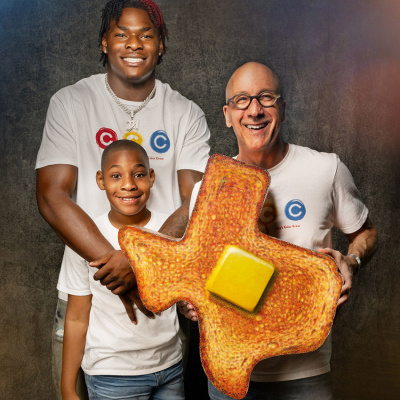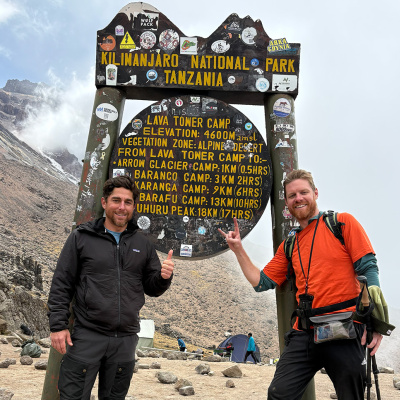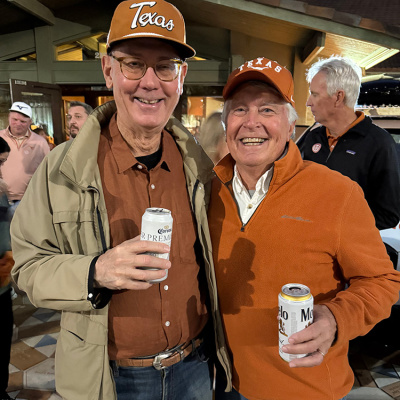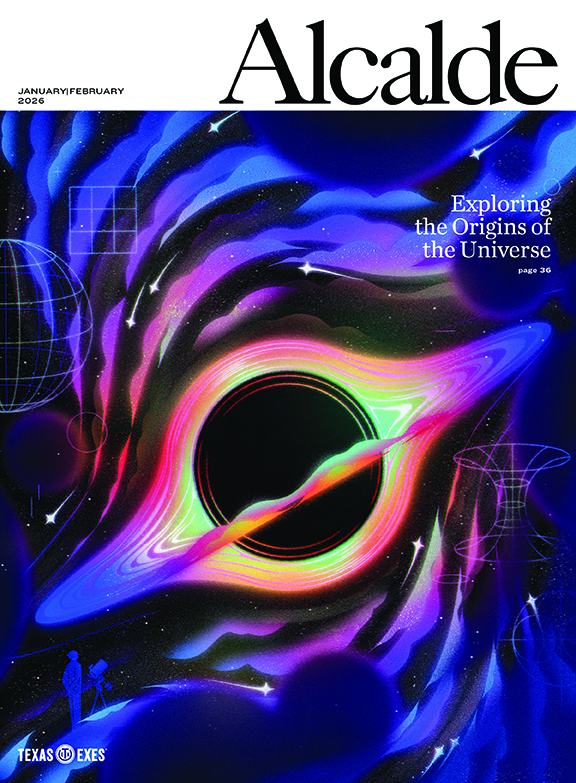Why Research Matters: One Alum's Story
More than 80 percent of UT undergraduates participate in academic research. But few do it as Collin Thomas did. Thomas, now a biology professor at Collin College, worked in Stanley Roux’s biology lab at UT for nearly a decade—from a summer during high school to the day he earned his Ph.D. He spoke with The Alcalde about how the experience shaped his life and career.

How did you start working in the Roux lab?
I started the summer after my junior year of high school through a National Science Foundation program. I was a good student, and I liked science, but I had no idea what I wanted to do. For a while I wanted to be a stonemason, and I thought about not going to college at all. All that changed after I spent a summer in the lab.
What was the experience like?
It was very exciting. I remember when Stan said, “Phytochrome is my favorite molecule.” I’d never heard a man profess a love for a molecule before. He and other professors fostered a culture of genuine curiosity and fun, and that was infectious.
I spent hours and hours in the dark cutting the heads off pea plants, listening to grad students talk about everything from photoreceptors to JFK assassination conspiracy theories. I was hooked.
What were your undergraduate years at UT like?
I was a Plan II student, so I did some of everything. Stan actually encouraged me to major in the liberal arts. I was all fired up about being a scientist, but he convinced me that it’s important to explore and get a liberal arts education. And I tell my own students that today.
How would your life be different if you hadn’t worked in the Roux lab?
Well, I might not have gone to UT. And if I hadn’t done that, I wouldn’t have met and married my best friend. And I certainly wouldn’t be the teacher I am today—with such a focus on integrating research and teaching. They’re inseparable, really.
How do you integrate research in your teaching?
We forget most of the things we learn when we’re young—the facts and textbook knowledge. But experiences, anecdotes—we remember those, and we learn by doing. So in my genetics class, I only lecture for half the semester. The other half, the students do their own independent research projects. I also have a journal club, where they learn to read scientific papers.
Where did you go after you got your Ph.D.?
I was a post-doc at Rockefeller University in New York. I got involved with a program where I paired up with a high school teacher and taught high school classes, and I loved that. Teaching is so challenging and so gratifying; I decided to focus more on that than my own research.
How did you come back to Texas?
I had a choice between an industry job that paid between $80,000 and $100,000 and this community college job that paid a lot less. And it was a no-brainer. I love my job; I live my education every single day.
What skill do students gain from research?
Science skills are applicable to any career. Doing research trains you to ask good questions, to think critically, to read and write with confidence. Most of all, it prepares you to deal with ambiguity—you learn how to react when things don’t go the way you had planned. There’s a lot of ambiguity in the lab, and the real world is like that, too.
Many of my students become health professionals, and when their families call to ask them medical questions—which happens all the time if you are a health professional—they know how to research new topics and evaluate things critically.
What do you think the role of a college professor is?
I think my role is not necessarily only to convey a set of facts. Then I would just be a glorified file clerk. If I can help young people become thoughtful, intellectual adults capable of picking apart arguments and finding fallacies and being skeptical, then I'm doing my job.
Photo by Nick Young/Collin College






